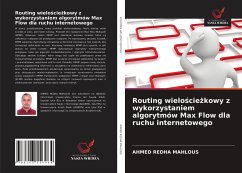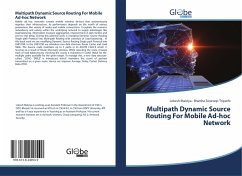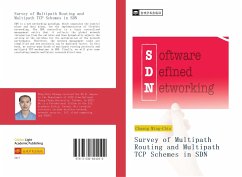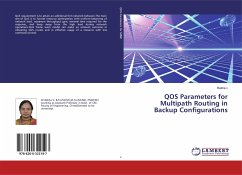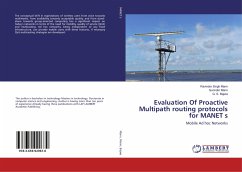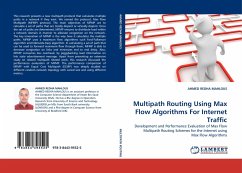
Multipath Routing Using Max Flow Algorithms For Internet Traffic
Development and Performance Evaluation of Max Flow Multipath Routing Schemes for the Internet using Max Flow Algorithms
Versandkostenfrei!
Versandfertig in 6-10 Tagen
45,99 €
inkl. MwSt.

PAYBACK Punkte
23 °P sammeln!
This research presents a new multipath protocol that calculates multiple paths in a network if they exist. We named the protocol, Max Flow Multipath (MFMP) protocol. The main objectives of MFMP are to calculate a set of paths that are totally disjoint or virtually disjoint. Once the set of paths are determined, MFMP ensures to distribute load within a network domain in manner to alleviate congestion on the network. The key innovation of MFMP is the way how it calculates the multiple paths. MFMP uses a maximum flow algorithms such Ford-Fulkerson algorithm and Edmonds-Karp algorithm. In calculat...
This research presents a new multipath protocol that calculates multiple paths in a network if they exist. We named the protocol, Max Flow Multipath (MFMP) protocol. The main objectives of MFMP are to calculate a set of paths that are totally disjoint or virtually disjoint. Once the set of paths are determined, MFMP ensures to distribute load within a network domain in manner to alleviate congestion on the network. The key innovation of MFMP is the way how it calculates the multiple paths. MFMP uses a maximum flow algorithms such Ford-Fulkerson algorithm and Edmonds-Karp algorithm. In calculating a set of path that can be used to forward maximum flow through them, MFMP is able to decrease congestion on links and minimizes end to end delay. Also, MFMP consumes less overhead, by piggybacking load information on link state advertisement message. Apart from presenting an extensive study on related multipath related work, this research discussed the performance evaluation of MFMP. Theperformance comparison of MFMP with Equal Cost Multipath (ECMP) was deeply studied on different random network topology with varied size and using different metrics.




